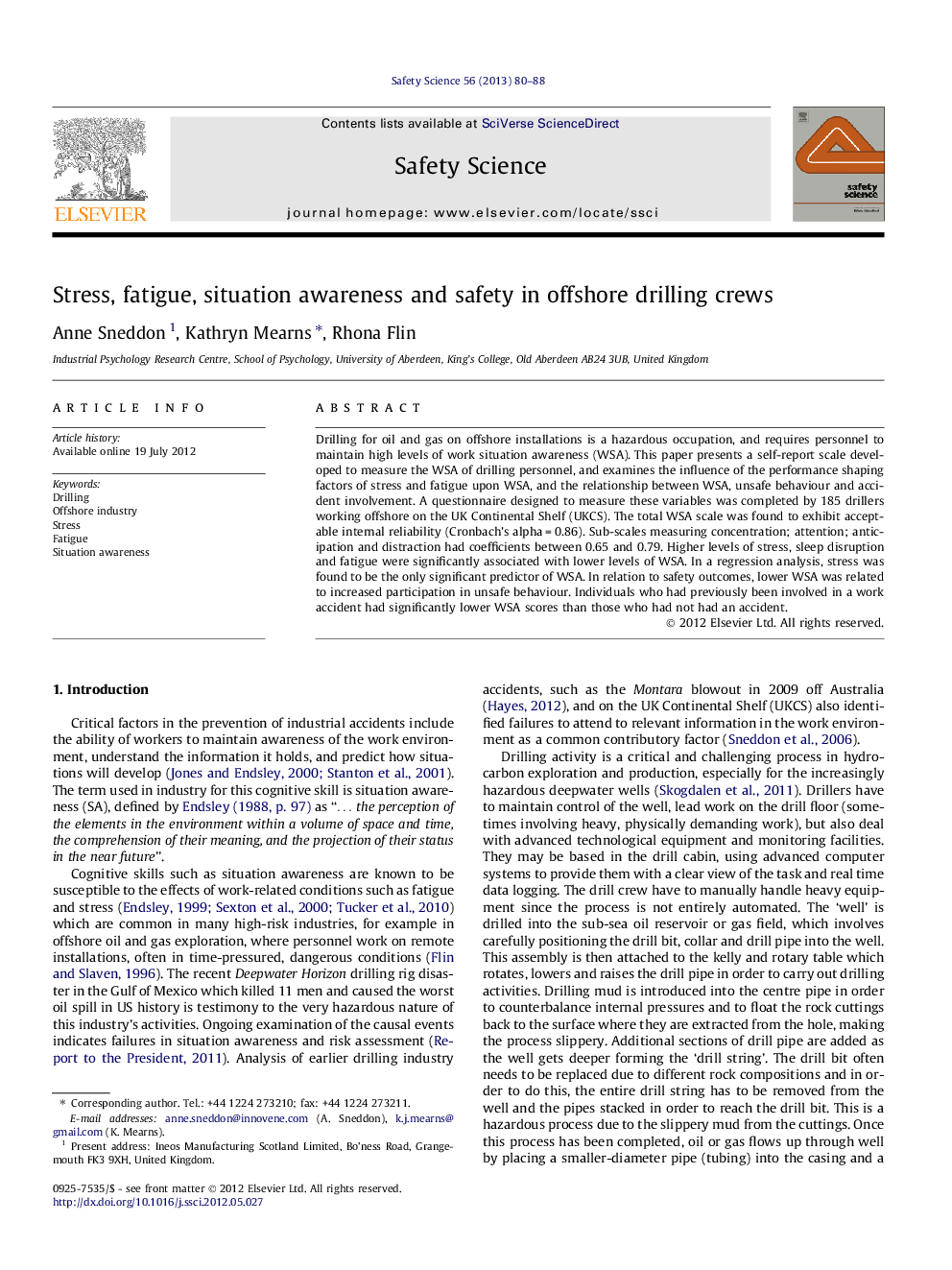| Article ID | Journal | Published Year | Pages | File Type |
|---|---|---|---|---|
| 589269 | Safety Science | 2013 | 9 Pages |
Drilling for oil and gas on offshore installations is a hazardous occupation, and requires personnel to maintain high levels of work situation awareness (WSA). This paper presents a self-report scale developed to measure the WSA of drilling personnel, and examines the influence of the performance shaping factors of stress and fatigue upon WSA, and the relationship between WSA, unsafe behaviour and accident involvement. A questionnaire designed to measure these variables was completed by 185 drillers working offshore on the UK Continental Shelf (UKCS). The total WSA scale was found to exhibit acceptable internal reliability (Cronbach’s alpha = 0.86). Sub-scales measuring concentration; attention; anticipation and distraction had coefficients between 0.65 and 0.79. Higher levels of stress, sleep disruption and fatigue were significantly associated with lower levels of WSA. In a regression analysis, stress was found to be the only significant predictor of WSA. In relation to safety outcomes, lower WSA was related to increased participation in unsafe behaviour. Individuals who had previously been involved in a work accident had significantly lower WSA scores than those who had not had an accident.
► Following the BP Deepwater Horizon disaster, situation awareness (SA) has become an important issue for the drilling industry. ► This study develops and tests a questionnaire to measure work situation awareness (WSA) in drilling personnel. ► Individuals reporting higher levels of stress, sleep disruption and fatigue were found to have poorer WSA. ► Individuals reporting poorer WSA also reported higher levels of safety violations. ► SA, fatigue and stress management should be key components of CRM for drill crews.
